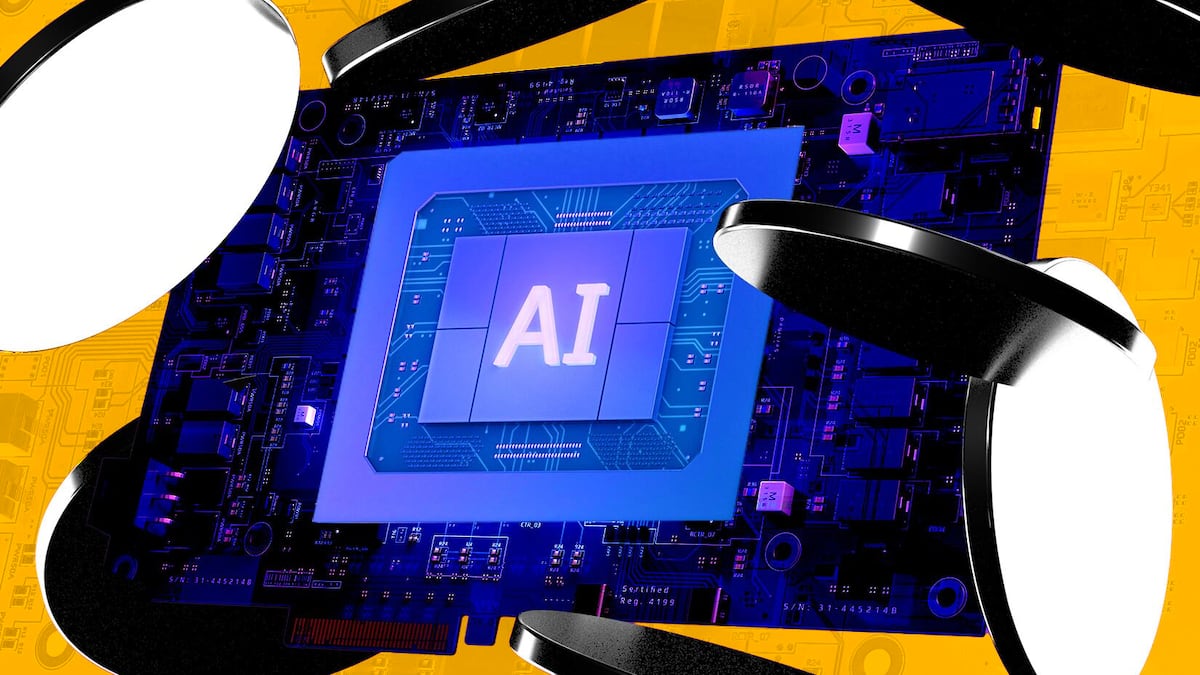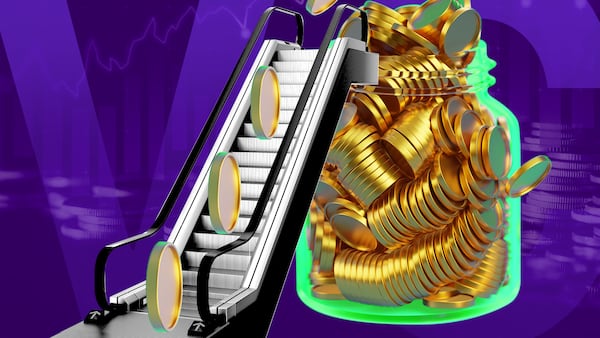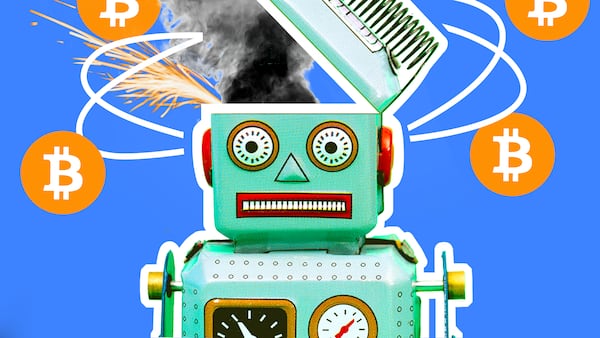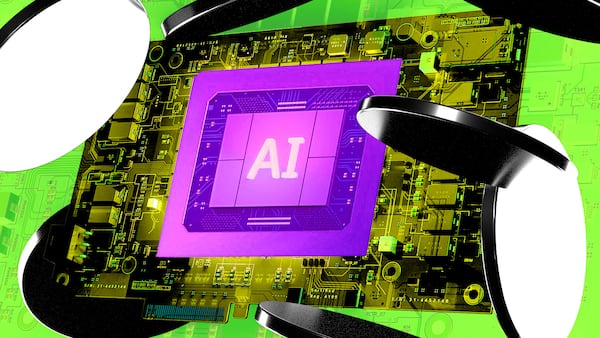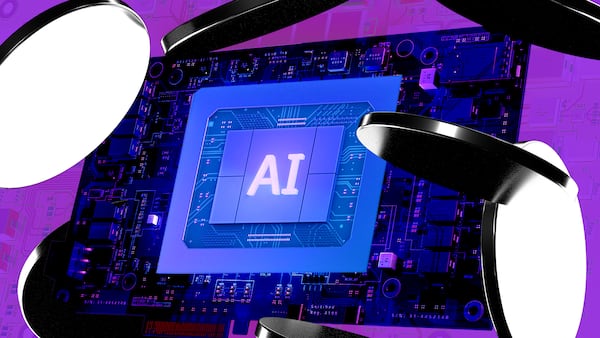- AI-linked crypto companies have raised almost $1.9 billion in 2025.
- The market is expected to swell to be worth $1 trillion.
- Yet, others are sceptical about the projects’ results so far.
The artificial intelligence-powered crypto sector will skyrocket five times over to be worth $1 trillion within the next decade.
That’s according to Maxim Legg, CEO of blockchain infrastructure firm Pangea. He told DL News that the sector will gain momentum as legitimate projects get into the mix.
“AI will become the new interface for blockchains, which will open up blockchain infrastructure to non-technical users — instead of simply degens and developers,” Legg said. “Once technical barriers have been removed through AI, truly anyone can transact onchain.”
Legg’s prediction underscores the stubborn sunniness of those betting that the sector, which venture capital firm Archetype estimates is worth roughly $20 billion, will revolutionise crypto trading.
And investors are putting their money where their mouths are. AI-linked crypto startups have raised almost $2 billion across 261 deals in 2025 alone, PitchBook figures show, following just over $2.5 billion in 2024. Since 2020, the sector has attracted almost $13 billion in total funding, PitchBook data shows.
DefiLlama data paints a similar picture. Startups innovating at the intersection of crypto and AI raised over $550 million in the first nine months of the year, a 7% uptick from the amount raised in total in 2024, according to the data.
Yet, even as investors are ploughing capital into projects promising to deliver at the cutting edge of technology, others warn that, so far, those startups have delivered very little.
Surge to $35 billion
On paper, AI has a lot going for it.
Companies in the sector, such as chipmaker Nvidia and software giant Microsoft, have driven stock markets’ growth over the past two years as the hype around AI has reached a fever pitch.
Adding to the buzz, OpenAI, the leading generative AI company in the world, announced a multi-billion deal with Advanced Micro Devices earlier in October. The deal will see OpenAI buy six gigawatts worth of AMD chips.
In crypto, news like that has pushed the total value of the AI-linked tokens market surge by 14% over the past 30 days to hit $35.5 billion, according to CoinMarketCap. That’s just about half of the $70 billion record reached in December.
Danny Sursock, a partner at Archetype, is among those bullish on AI’s ability to revolutionise crypto. His firm has backed startups like Exo and Ritual, which blend the worlds of crypto and AI.
He tells DL News that he’s betting that the market will double in size and be worth up to $40 billion in 2026.
“We’ll see the emergence of a few killer AI apps onchain,” Sursock told DL News. “Use cases will range from substantially improved front ends built with intuitive natural language interfaces, to protocols with agents operating semi-autonomously on behalf of humans to execute on a wide variety of tasks.”
Many share that bullishness. For instance, researchers at asset manager Bitwise suggest that the marriage of crypto and AI will add $20 trillion to the global economy by 2030.
“The floodgates are about to open,” Ron Tarter, CEO of stablecoin company MNEE, told DL News.
‘Lose it altogether’
Even so, the amount raised by crypto-powered AI projects this year is still only about 1% of the total funding flowing into the overall AI sector, with the majority of money going into major players like OpenAI and Anthropic, per PitchBook’s data.
Despite the bullishness, even people like Sam Altman, the CEO of OpenAI, and Meta chief Mark Zuckerberg have warned that an AI bubble may be forming which could cost investors a lot of money.
In crypto, sceptics are also throwing cold water on the bullishness.
Nick Emmos, co-founder and CEO at Allora Labs, a firm building a decentralised AI network, told DL News earlier in October that, despite the bullishness around AI agents, so far those autonomous solutions tend to get things wrong.
“There’s an infinite set of possibilities for the management of capital to go wrong,” Emmons said. “They could lose it altogether. They could put it in the wrong assets. They can misinterpret numerical inputs to make incorrect financial decisions, all sorts of things.”
Others, like Sean Ren, University of Southern California professor and CEO of Sahara Labs, told DL News that crypto-AI projects are still “theoretical, lacking real-world applications or cohesive infrastructure.”
Brian Huang, co-founder of portfolio automation software Glider, points out a fundamental flaw in the fusion between AI and blockchain.
“The biggest problem with crypto-AI is ‘finality.’ If your Ethereum gets sent to the wrong place, there’s no way to get it back,” Huang told DL News. “This ‘finality’ problem is true even outside of crypto: you’re not asking Siri or ChatGPT to Venmo your friends.”
The other “obvious flaw” for the crypto-AI space is that centralised AI products, such as ChatGPT, have a better user experience than decentralised versions, Huang said.
“It begs the more meta question: do users really care about decentralisation?” he added.
You’re reading the latest instalment of The Weekly Raise, our column covering fundraising deals across the crypto and DeFi spaces, powered by DefiLlama.
Lance Datskoluo is DL News’ Europe-based markets correspondent. Got a tip? Email at lance@dlnews.com.


